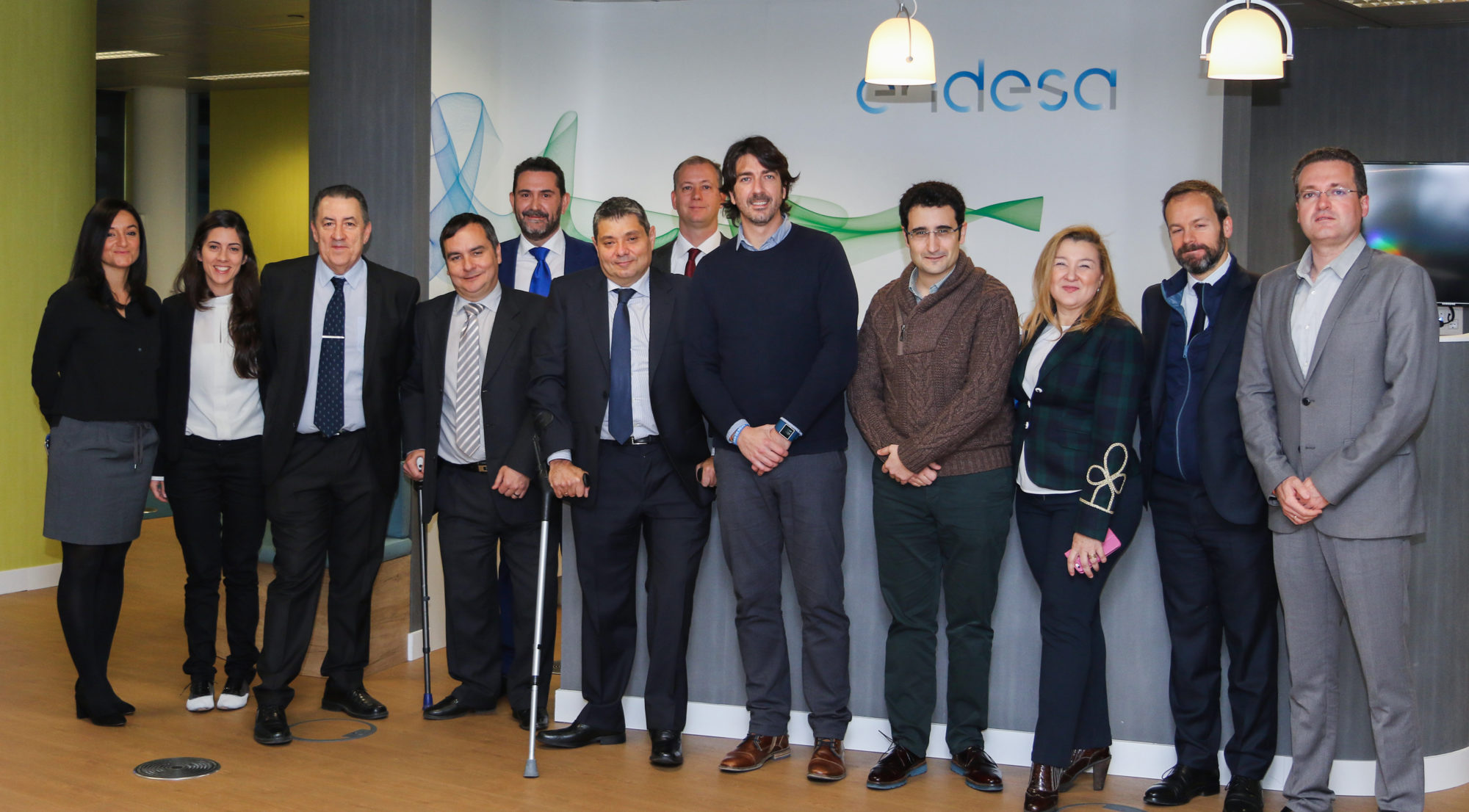
Spanish Parliament Disability Commission visits INTEGRA CEE at Endesa
- Meeting between institutions to understand Integra CEE’s work on the social and workplace inclusion of people with functional differences.
- The CEE [Special Employment Centres] sector generates more than 70% of employment for people with disabilities within the country.
Representatives of the Spanish Parliament’s Disability Commission visited Endesa headquarters in Madrid to learn about the work undertaken on the workplace inclusion of people with functional differences by the Integra Special Employment Centre, known as Integra CEE.
The meeting took place on 26th January, attended on behalf of the Commission by Members of Parliament from the political party Cuidadanos: Sergio del Camp Estaún, one of the MPs on the Parliamentary Commission on Employment and Social Security; Tomas Marcos, who is a Senator with responsibility for Disability Policies at the Madrid Assembly; and Francisco Cano Fuster, MP for Alicante. Also at the meeting were representatives of the Madrid Association of Special Employment Centres [ACEEM], representatives from the National Confederation of Special Employment Centres [CONACEE], along with representatives from Endesa and Clece.
As part of Clece, Integra CEE can count on the company’s employees and its global work assisting the integration of people with functional differences. Thanks to this, out of 71,982 Clece employees, 6,926 belong to this collective. Integra CEE is assuming a growing leadership role in this work and currently provides services to 269 companies and institutions. It has more than 2,600 workers, of which, 87% have some kind of disability, well above the 70% level established in law for this type of company.
In order to deliver its work, Juan José Laguna, the Managing Director of the Integra Group, highlighted the “essential” role of the Support Unit, which consists of 58 employees. “It favours the creation of a positive environment for inclusion, identifies needs, and resolves any issues which may arise, whether this is in the selection of employees, their induction, training or their performance in the workplace. In 2015 alone, it undertook 12,506 social and workplace actions” he explained.
Endesa shared its own experience of incorporating Integra CEE into the management of its auxiliary services highlighting “the high quality level attained as it is the service which is most highly valued by internal clients”. Once the explanatory session had ended, there was a visit to the team of employees responsible for delivering these services. Participants could then exchange views in person with employees on their work experience at the special employment centre.
The visit highlighted the inequality in employment which disabled people experience in our country, where unemployment and inactivity rates are the higher among the disabled population than the non-disabled population, rates which are also above the European average. Only one out of every four disabled workers are employed.
Within this context, the CEE sector plays a key role as an essential instrument for generating employment for people with disability, as more than 70% of workers with disabilities who are currently in work, work in a CEE.
